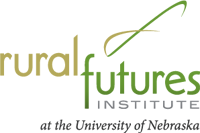
Rural Futures Institute: Publications
Date of this Version
9-3-2017
Document Type
Article
Citation
Nebraska Rural Poll: A Research Report, no. 17 (September 3, 2017)
Also available at http://ruralpoll.unl.edu
Abstract
Conclusion
Rural Nebraskans most trust information received from local news sources (TV and newspapers) and public sources (PBS and public radio). They least trust information from social networking sites and Internet blogs. Most rural Nebraskans are somewhat or very confident in their ability to recognize news that is made up.
Most rural Nebraskans have confidence in their local institutions (public safety agencies in their community; public schools in their community; and voting and election systems in their county). On the other hand, over one-quarter of rural Nebraskans have very little confidence in the following national institutions: U.S. House of Representatives, U.S. Senate and the Presidency and executive branch of government.
Most rural Nebraskans support early voting, requiring all voters to provide photo identification at their polling place in order to cast a ballot and automatic voter registration. Almost one-half support online voter registration.
Most rural Nebraskans believe both votes being cast by people not eligible to vote and eligible voters not being allowed to cast a vote were either a minor or major problem in last year’s election. Over one-third of rural Nebraskans believe votes being cast by people not eligible to vote was a major problem. Over four in ten believe it was a minor problem. Fewer rural Nebraskans perceive eligible voters not being allowed to cast a vote as a problem. Two in ten believe this was a major problem and just under four in ten think it was a minor problem.
Included in
Agriculture Commons, Arts and Humanities Commons, Business Commons, Education Commons, Engineering Commons, Mass Communication Commons, Medicine and Health Sciences Commons, Social Influence and Political Communication Commons


Comments
Copyright 2017, the authors. Used by permission.
Funding for this project was provided by the Cooperative Extension Division of the Institute for Agriculture and Natural Resources, the Agricultural Research Division of the Institute for Agriculture and Natural Resources, and the Department of Agricultural Economics. Additionally, in-kind support was provided by the University of Nebraska Rural Futures Institute.